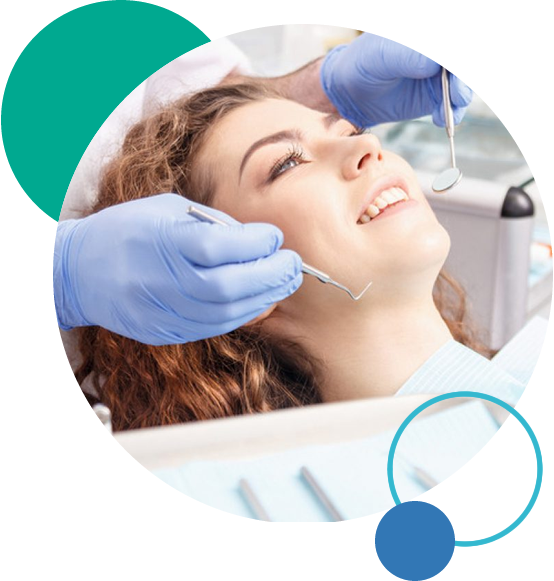DENTAL EXAMS & CLEANING
Dental Exams
- Examination of diagnostic radiographs (x-rays)
- Oral cancer screening
- Gum disease evaluation
- Examination of tooth decay
- Examination of existing restorations

 ); ?>/images/service-details1.png)
Professional Dental Cleaning:
 ); ?>/images/service-details2.png)
Dental X-Rays
Sealants
Reasons for sealants:
 ); ?>/images/service-inner1.png)
Children and teenagers
 ); ?>/images/service-inner2.png)
Adults
 ); ?>/images/service-inner3.png)
Baby teeth
Fluoride Treatment
Fluoride is one of the most effective agents available to help prevent tooth decay. It is a mineral that is naturally present in varying amounts in almost all foods and water supplies. The benefits of fluoride have been well known for over 50 years and are supported by many health and professional organizations.
Although most people receive fluoride from food and water, sometimes it is not enough to help prevent decay. Your dentist or dental hygienist may recommend the use of home and/or professional fluoride treatments for the following reasons:
 ); ?>/images/service-details3.png)
- Deep pits and fissures on the chewing surfaces of teeth
- Exposed and sensitive root surfaces
- Fair to poor oral hygiene habits
- Frequent sugar and carbohydrate intake
- Inadequate exposure to fluorides
- Inadequate saliva flow due to medical conditions, medical treatments or medications
- Recent history of dental decay
- To help prevent dental caries under existing dental restorations
 ); ?>/images/service-night.png)
Night Guards
The pain and discomfort of Bruxism, the grinding of your teeth while sleep, is shared by millions of people. The costs in pain, headaches, TMJ problems and tooth damage/sensitivity are usually too much to bear.
A Night Guard is a simple, affordable solution for protecting your teeth and jaw from the detrimental effects of nighttime teeth grinding. It consists of an acrylic tray that comfortably fits over your upper teeth. This creates a cushion between the upper and lower teeth and absorbs the force of grinding.
Ask your dentist how you can obtain your own custom-made night guard !!
Home Care

Flossing
